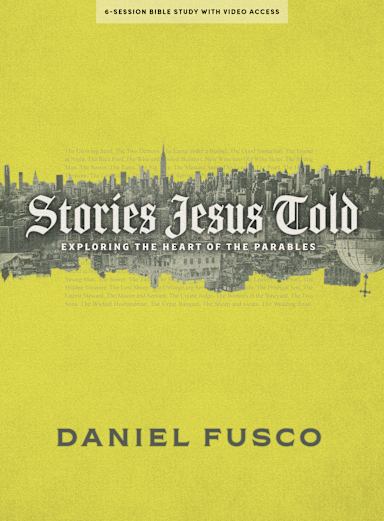Human beings love stories. As children, our parents and teachers read stories to us as we listened attentively. As we get older, our taste in stories matures, but we never outgrow our love for them. We wait with anticipation for new movies and new releases from our favorite authors — all because we love great stories.
Jesus was a master-teacher. He knew the power of a story, so it's not surprising Jesus used stories or parables to communicate spiritual truths. Through the parable of the soils we can learn a lot about the condition of our human hearts.
"The same day went Jesus out of the house, and sat by the sea side. And great multitudes were gathered together unto him, so that he went into a ship, and sat; and the whole multitude stood on the shore. And he spake many things unto them in parables, saying, Behold, a sower went forth to sow; And when he sowed, some seeds fell by the way side, and the fowls came and devoured them up: Some fell upon stony places, where they had not much earth: and forthwith they sprung up, because they had no deepness of earth. And when the sun was up, they were scorched; and because they had no root, they withered away. And some fell among thorns; and the thorns sprung up, and choked them: But other fell into good ground, and brought forth fruit, some an hundredfold, some sixtyfold, some thirtyfold. Who hath ears to hear, let him hear."
Matthew 13:1-9, NKJV
Jesus often used familiar concepts to explain unfamiliar spiritual truths. In the first century, Jesus ministered in an agrarian culture, so it's not surprising He used a farming example to illustrate a spiritual principle. In the parable of the soils, Jesus identified four potential types of soil that represent the human heart and He explained the parable in further detail:
"Hear ye therefore the parable of the sower. When any one heareth the word of the kingdom, and understandeth it not, then cometh the wicked one, and catcheth away that which was sown in his heart. This is he which received seed by the wayside. But he that received the seed into stony places, the same is he that heareth the word, and anon with joy receiveth it; Yet hath he not root in himself, but dureth for a while: for when tribulation or persecution ariseth because of the word, by and by he is offended. He also that received seed among the thorns is he that heareth the word; and the care of this world, and the deceitfulness of riches, choke the word, and he becometh unfruitful. But he that received seed into the good ground is he that heareth the word, and understandeth it; which also beareth fruit, and bringeth forth, some an hundredfold, some sixty, some thirty."
Matthew 13:18-23, NKJV
The four types of soils that Jesus mentions represent potential conditions of the human heart:
1. Hard heart (v. 19)
2. Shallow heart (v. 20-21)
3. Worldly heart (v. 22)
4. Open heart that's receptive to God's truth (v. 23)
So here's the thing: One quality of the soil of your heart that you're keeping is that you could have a hard heart. And because you have a hard heart, God's Word can't get in. You don't understand it. It sits on the surface. And you know what they call seed that's on the surface — bird food.
All of us have the capacity to have hardness in our hearts. A lot of times, that hardness is formed by people stepping on it. If you've had enough bad stuff go on, it's natural for your heart to get hard. For some of us, the circumstances of our lives have made us hard. Maybe it was a bad relationship or situation. Maybe people did awful things to you. The problem with hard-heartedness is that there's no room for the seed (which represents God's truth) to get in at all. The seed sits on the surface and is exactly what the enemy Satan wants, because the Word of God can't get in and change you. It sits on the surface and gets nowhere.
The problem with hardness of heart is that it's not fruitful. Prayer will be a key factor in avoiding a hard heart. So you have to say, "Lord, will You do a work on me? Lord, will You break up the hard areas of my life?" In our prayer life, we have to continually pray for spiritual growth and maturing. As we study of the parables, we'd do well to pray for our hearts to be open to God's Word and fruitful for the kingdom of God.
Excerpted from Daniel Fusco's Stories Jesus Told: Exploring the Heart of the Parables Bible study, session two. Published by Lifeway Press®. © 2021 Daniel Fusco.
Join Daniel Fusco through six sessions as you discover how Jesus' parables not only form (or reform) who you are, but reveal more about God than you ever thought possible. You'll find the hope you’re looking for speaking above all the other noise you may be experiencing.

